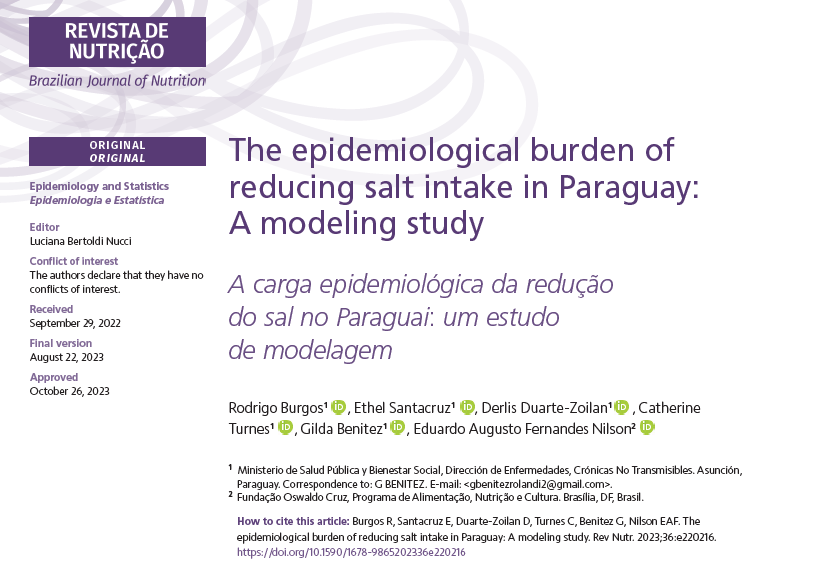La carga epidemiológica de la reducción de sal en Paraguay: un estudio de modelo.
Objective This study aims to estimate the epidemiological burden of excessive salt intake reduction and achieve the World Health Organization salt reduction target for 2025 in Paraguay, in 2019. Methods We used the Preventable Risk Integrated Model, a comparative risk assessment macrosimulation model, to estimate the averted deaths, disease incidence, and disability-adjusted life years from cardiovascular disease attributable to salt intake in the population of Paraguay for different salt reduction policy scenarios. Results As a result, in Paraguay, excessive salt intake (over 5 g/day) is responsible for approximately 2,656 cardiovascular disease deaths (95% Uncertainty Interval: 1,250-3,765), 4,816 cardiovascular disease cases (95% UI: 2,251-6,947), and 60,529 disability-adjusted life years (95% UI: 27,828- 86,258) per year. By reducing salt consumption by 30%, as recommended by the World Health Organization until 2025, approximately 1,188 deaths (95% UI: 520 to 1,820), 2,100 incident cases (95% UI: 923-3,234), and 27,272 disability-adjusted life years (95% UI: 11,999-41,675) from cardiovascular disease could be averted every year. Conclusion In conclusion, the burden of cardiovascular disease attributable to excessive salt intake is significant and salt reduction policies must become a priority in Paraguay.
Clic en el siguiente enlace para acceder al documento completo Descargar
![Logo de la [Institución Pública]](https://dvent.mspbs.gov.py/wp-content/uploads/2023/08/cropped-2023-08-16_122207.png)
